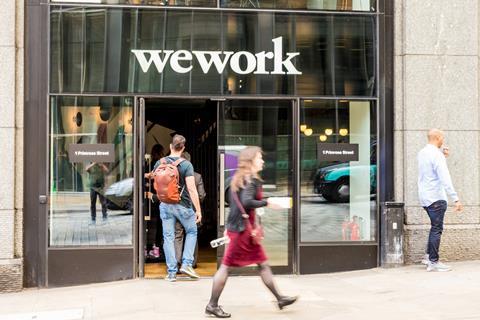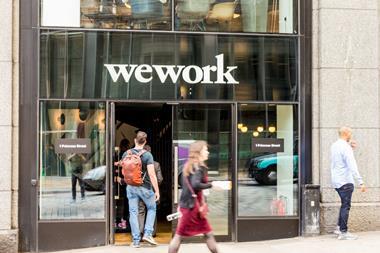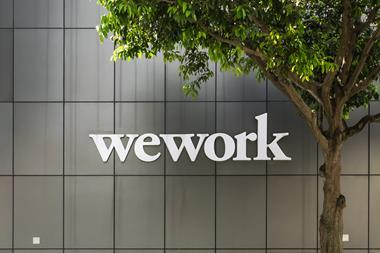News of The We Company’s IPO being postponed last week was a predictable outcome following weeks of media commentary about the firm’s valuation, its complex relationship with co-founder and recently resigned chief executive Adam Neumann, the risks in WeWork’s subletting model and its widening operating losses.

But regardless of its failure to list, the industry can still learn a lot from WeWork and its IPO process. While the company’s $47bn (£37.6bn) valuation was always questionable, the figure – even if now vastly reduced – highlights the huge potential of the flexible workspace sector and the value to property businesses of adopting technology.
WeWork owes its unicorn status in part to its insistence that it is a tech firm, not a property company. This should make those in the industry – however sceptical of WeWork – sit up and pay attention to the potential benefits of applying tech to their offering. Proptech has been an industry buzzword for the past few years, but to most people in the property world, it remains a slightly mystifying, catch-all term with little day-to-day relevance.
WeWork has been enormously helpful in raising awareness of flexible space more generally
The rise of the internet and mobile devices has been behind huge changes in human behaviour over the past 25 years. Looking at the effect it has had on the retail sector, it is hard to deny that embracing tech and understanding its impact will be critical to property businesses’ future success.
Yet the property industry will not become the tech industry. Tech can play a part in making a property company a better business, but it needs to be applied thoughtfully to add value to the firm or end user. Investors and customers will not be taken in by tech for tech’s sake.
Applying technology
Analysis of what brings customers to BizSpace centres has identified that location, quality of space and service are the most important factors. We look to apply tech in the customer journey and the ability to offer space even more flexibly.
For example, we recently introduced 3D Matterport virtual tours of our workspaces and are also introducing the ability to book a desk, office or meeting room at any of our sites, online, for as little as an hour. We are using tech to increase flexibility and ease of customer acquisition across our portfolio.

We must also remember that tech cannot replace human interaction. Many city-focused co-working operators have developed apps to link up businesses working in their spaces, to encourage networking between customers. But without a personal introduction, it is unlikely anyone would choose to do business with someone just because they work in the same brand of building.
While we are introducing an online directory to assist with ongoing contact, our main investment is in our building managers: encouraging them to get to know the businesses in our spaces and make relevant introductions; or to organise events where businesses can make connections more organically.
Clearly there is value in data that The We Company can collect on its members, its ability to curate spaces, and the add-on products and services it can provide for customers. But WeWork’s drastically reduced valuation and delayed IPO highlight that tech, ideas and hype can only augment a real estate business; they cannot replace profitability and a freehold-owned property portfolio.
With its free beer and Instagrammable spaces, WeWork has shaken up the city centre office market and been enormously helpful in raising awareness of flexible space more generally. Even in the regions and outskirts of towns and cities, where the majority of our centres are located and WeWork is not present, many customers are looking for a WeWork-type space. The firm’s valuation may have been punchy and its IPO may not have been the success it had hoped for, but it has put the flexible workspace market firmly under the spotlight.
Emma Long is commercial director of BizSpace






























No comments yet